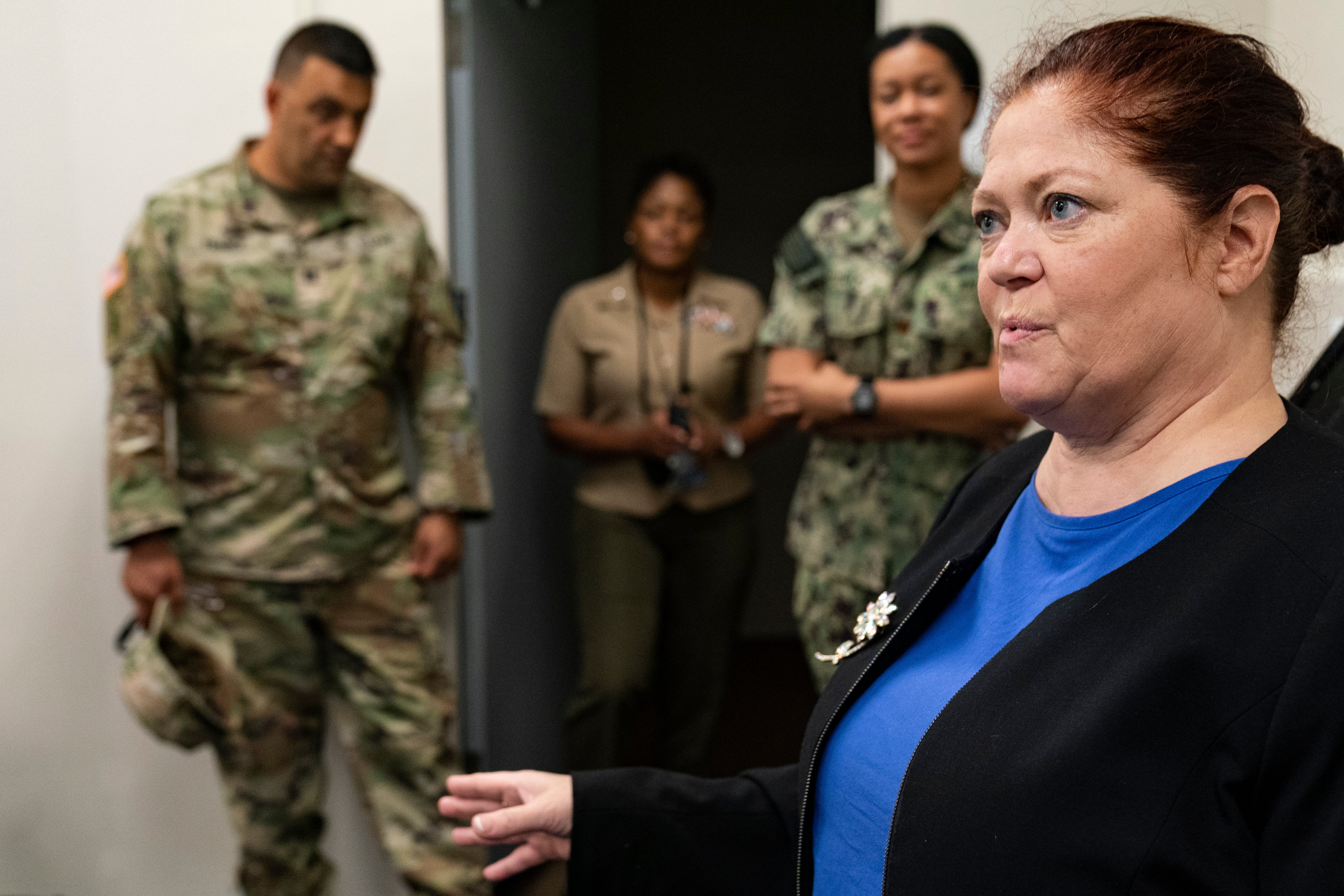Bali bomb case at Guantanamo runs into immediate challenges
Three men held at the Guantanamo Bay detention center were formally charged Tuesday in the 2002 Bali nightclub bombings and other plots in Southeast Asia 18 years after they were taken into U.S. custody

Your support helps us to tell the story
From reproductive rights to climate change to Big Tech, The Independent is on the ground when the story is developing. Whether it's investigating the financials of Elon Musk's pro-Trump PAC or producing our latest documentary, 'The A Word', which shines a light on the American women fighting for reproductive rights, we know how important it is to parse out the facts from the messaging.
At such a critical moment in US history, we need reporters on the ground. Your donation allows us to keep sending journalists to speak to both sides of the story.
The Independent is trusted by Americans across the entire political spectrum. And unlike many other quality news outlets, we choose not to lock Americans out of our reporting and analysis with paywalls. We believe quality journalism should be available to everyone, paid for by those who can afford it.
Your support makes all the difference.Three men held at the Guantanamo Bay detention center were formally charged Tuesday in connection with the 2002 Bali nightclub bombings and other plots in Southeast Asia after 18 years in U.S. custody, with defense lawyers insisting afterward that the long-delayed process was so flawed it may have to be repeated.
The men returned to the secure courthouse encircled by razor wire on the U.S. base in Cuba amid defense complaints about courtroom interpreters that caused what was supposed to be a brief arraignment before a military commission into a two-day affair.
It was a rocky start to case already expected to be complex because of the prolonged detention without charges for the three — an Indonesian and two Malaysians — and the brutal treatment they endured in CIA custody.
Encep Nurjaman, the Indonesian militant leader known as Hambali, and the two men faces charges that include murder, terrorism and conspiracy before the commission, which is a hybrid of military and civilian law. They have not yet entered pleas.
The start of their long-delayed case comes as other war crimes tribunals at Guantanamo have languished without resolution for years amid legal challenges and as President Joe Biden says he intends to close the detention center, which now holds 39 of the 779 men who were brought to the base following the Sept. 11 attacks.
“Frankly after this two day arraignment, I didn’t see any evidence that he would get a fair trial," said Christine Funk, the attorney for, Mohammed Farik bin Amin, one of the Malaysian defendants.
The defense complained that the Malaysian interpreter's language skills were so poor that at least one defendant couldn't understand what was being said in court; that another Malay interpreter was improperly working for the prosecution because he previously assisted the prisoners when they appeared before a review board at Guantanamo; and that the Indonesian interpreter had been overheard disparaging the men as terrorists who should be killed.
The judge, a Navy commander, allowed the proceeding to go on amid despite repeated objections. Defense attorney Brian Bouffard, who represents Malaysian defendant Mohammed Nazir bin Lep, said the arraignment was so flawed it should be done again.
“We have to have a new one because this one you have to do one. And this one wasn’t done right,” Bouffard said.
Nurjaman was a leader of Jemaah Islamiyah, a Southeast Asian militant group with ties to al-Qaida. The U.S. government says he recruited militants, including bin Lep and bin Amin, for jihadist operations, and that the two Malaysians helped transfer money to fund militant activity.
Among the plots that al-Qaida and Jemaah Islamiyah carried out were the October 2002 suicide bombings of Paddy’s Pub and the Sari Club in Bali, Indonesia, and the August 2003 suicide bombing of the J.W. Marriott in Jakarta, Indonesia. The attacks together killed 213 people, including seven Americans. The Bali bombing killed 88 Australians.
It’s unclear why it’s taken so long to charge them before the commission. Prosecutors filed charges against the men in June 2017, but the Pentagon legal official who oversees Guantanamo cases rejected the charges for reasons that haven’t been publicly disclosed.
All three were captured in Thailand in 2003 and transferred to CIA “black sites,” where they were brutalized and subjected to torture, according to a Senate Intelligence Committee report released in 2014. In 2006, they were moved to Guantanamo.
Lawyers for the men are expected to argue that the abuse they experienced has tainted any evidence against them, an issue that has caused other war crimes cases to stall in the pretrial phase, including the case against five men charged with planning and aiding the Sept. 11 attacks.